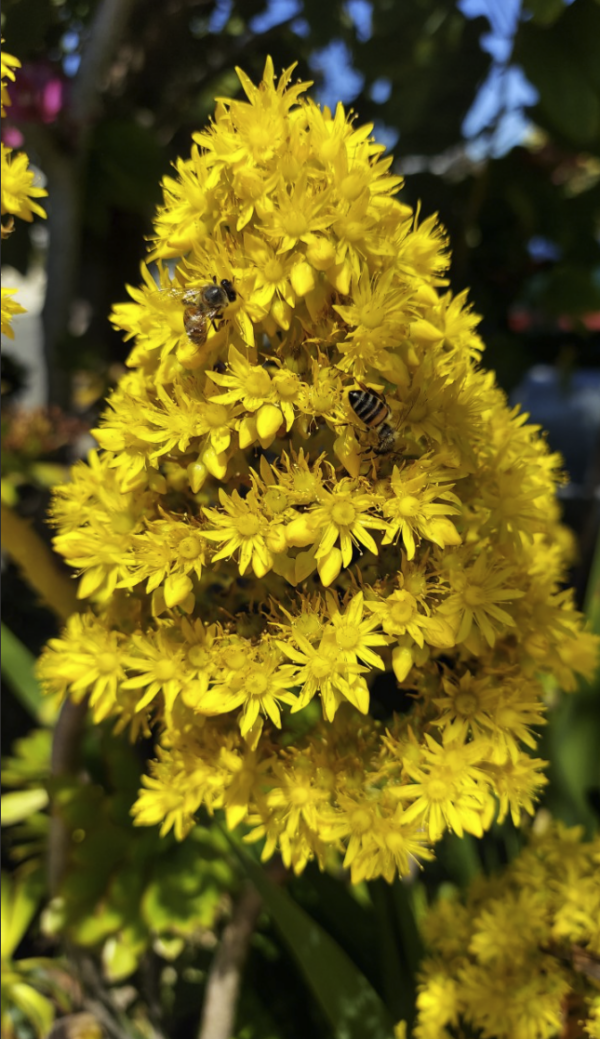A few hundred people attended the annual Graze at the Fields in Carlsbad on April 13 to experience the variety of San Diego agriculture while interacting with local farmers and purveyors.
Hosted by the San Diego County Farm Bureau representatives from a wide variety of agricultural industries shared with attendees information about the diversity and role agriculture plays in the county.
Many agriculture-related businesses and organizations were in attendance at the event. Some handed out free samples of the food and beverages they produce; some provided information about the products and services they provide; others showcased educational programs.
At the event, the University of California Agriculture and Natural Resources Cooperative Extension educated attendees about the Mexican fruit fly—also known as the Mexfly—infestation and quarantine in Valley Center. The fly infestation was found last August and is expected to end this June.
Representatives from Cal Poly Pomona provided information on its many educational programs at their Huntley College of Agriculture, ranging from undergraduate to Masters programs in agribusiness and food industry management, agricultural science, animal science, and nutrition.
Hollandia Dairy—a mainstay in San Diego’s dairy industry—also exhibited its operations at the event.
The company has over 800 employees who work at the San Jacinto dairy farm and San Marcos milk processing plant, which has its own fleet of delivery trucks, Hollandia Dairy’s General Sales Manager Rick Struble told The Epoch Times.
Also in attendance was J.R. Organics. This California Certified Organic Farm provides fresh produce at farmer’s markets, organic grocery stores, specialty stores, and restaurants.
The company also makes home deliveries on a subscription basis—a process known as community-supported agriculture. Such allows consumers to receive locally-grown produce fresh from the fields, sometimes less than 24 hours after it is picked.
Another organization present was Plus Box, a nonprofit that partners with local growers, food rescuers, and neighborhood schools to distribute boxes of fresh food to insecure families weekly.
The food is delivered to the schools during the day so that when the parent picks up the child, they can get a box of food at the same time, according to Plus Box Program Manager, Danielle Radford.
Other vendors and organizations at the event included restaurants, ranchers, chicken and egg farmers, a beekeeper, a mushroom farmer, house-plant growers, and the San Diego County Water Authority.
With over 5,700 farms and a mild climate, San Diego is one of the most agriculturally diverse counties in the nation.
The Farm Bureau, established in 1914, is supported by more than 1400 due-paying members in the county. It serves all agricultural businesses in San Diego through education, public relations, and public policy advocacy.
With only about 25 percent of the farms as members, the bureau still supports all farmers. “So, even if they’re not a member they still get the benefits of what our organization does,” Taylor Reese, county manager at the bureau, told the Epoch Times.
The variety of farms in the county is diverse. Some farmers are full-time, part-time, large, small, conventional, organic, urban, rural, well established, or just starting out.
Nearly 70 percent of the county’s farms are from 1 to 9 acres in size, and over 35 percent are operated by women. With more than 360 certified organic farms, San Diego County has more than any other county in the nation, according to the bureau’s website.



















